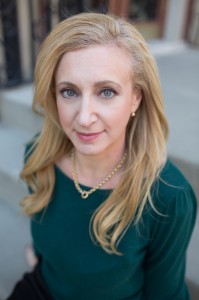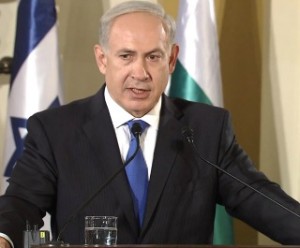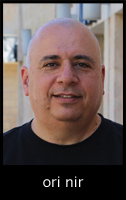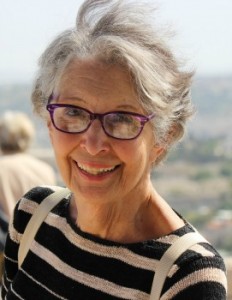 It seems there is no line Israeli Prime Minister Benjamin Netanyahu won’t cross to defend
settlements. Israeli law says settlers can’t steal Israeli-recognized Palestinian private land for their own
purposes? Netanyahu leaves no principle of rule of law unchallenged in the effort to “legalize” the settlers’ actions. The boycott-divestment-sanctions (BDS) movement
challenges Israel’s legitimacy? Netanyahu jumps on the chance to exploit the BDS threat to legitimize
settlements, accusing anyone who differentiates between Israel and settlements of embracing BDS (and accusing Israel’s closest allies of adopting policies similar to those of the Nazis). The
Palestinians – and virtually the entire world – argue that settlements are an obstacle to peace and will need to
be removed? Last week, Netanyahu releases a video accusing them of supporting ethnic cleansing.
It seems there is no line Israeli Prime Minister Benjamin Netanyahu won’t cross to defend
settlements. Israeli law says settlers can’t steal Israeli-recognized Palestinian private land for their own
purposes? Netanyahu leaves no principle of rule of law unchallenged in the effort to “legalize” the settlers’ actions. The boycott-divestment-sanctions (BDS) movement
challenges Israel’s legitimacy? Netanyahu jumps on the chance to exploit the BDS threat to legitimize
settlements, accusing anyone who differentiates between Israel and settlements of embracing BDS (and accusing Israel’s closest allies of adopting policies similar to those of the Nazis). The
Palestinians – and virtually the entire world – argue that settlements are an obstacle to peace and will need to
be removed? Last week, Netanyahu releases a video accusing them of supporting ethnic cleansing.
Let’s make one thing perfectly clear: the idea that Jews may not live in a given place, for no reason other than because they are Jewish, is abhorrent. But that isn’t what objecting to settlements is about, and Netanyahu knows it. The demand for the removal of Israeli settlements from the West Bank has nothing to do with where Jews, as Jews, can or cannot live. It has to do with whether Israel will be a permanent occupier or will accept a two-state solution.
And let’s make another thing clear: Defending settlements by appealing to Jewish historical trauma at the hands of the Nazis — which is what Jews think of when we hear the words “ethnic cleansing” or worse yet, the Nazi term often invoked Netanyahu and the settlers, “Judenrein” — is morally despicable, politically inflammatory and factually misleading.


 Rabbi Susan P. Fendrick is an editor, writer, teacher, and spiritual director. A graduate of
Brown University, she received rabbinic ordination in 1995 from the Jewish Theological Seminary of America and
is an alumna of the Wexner Graduate Fellowship program. Her writing appears in numerous books and
publications.
Rabbi Susan P. Fendrick is an editor, writer, teacher, and spiritual director. A graduate of
Brown University, she received rabbinic ordination in 1995 from the Jewish Theological Seminary of America and
is an alumna of the Wexner Graduate Fellowship program. Her writing appears in numerous books and
publications.
 On a trip to Israel last month, I visited a friend who runs a small store in downtown Jerusalem,
my hometown. Outside, on the street, there were dozens of young American Birthright tourists. “Business must be
hopping, with all these Birthrighters,” I said. “Not quite,” my friend replied. “Their parents send them here
with pocket money, but stay home in the U.S., with their credit cards.”
On a trip to Israel last month, I visited a friend who runs a small store in downtown Jerusalem,
my hometown. Outside, on the street, there were dozens of young American Birthright tourists. “Business must be
hopping, with all these Birthrighters,” I said. “Not quite,” my friend replied. “Their parents send them here
with pocket money, but stay home in the U.S., with their credit cards.”




